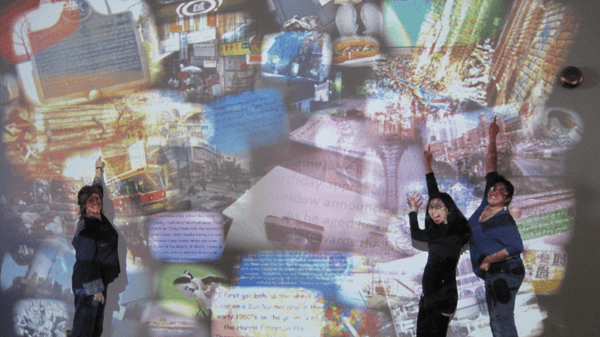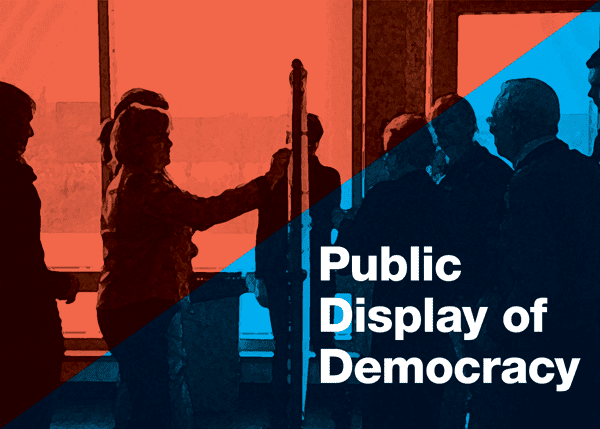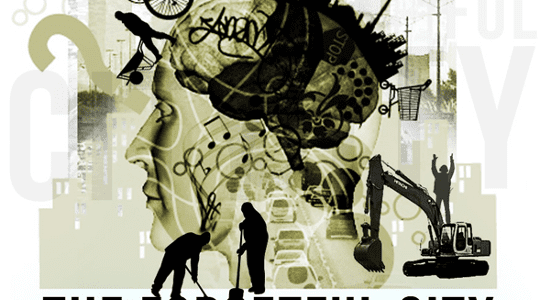The first event in our arts and ideas series, Deeper Dialogues, was part of Doors Open Toronto 2011. The Forgetful City—an interactive installation created by Yvette Nolan, Gein Wong and Donna-Michelle St Bernard, plus a panel discussion—explored what as a society we collectively decide to forget and what we choose to hold on to through memory and its embodiment in our physical city.
Landfill is an installation created by Yvette Nolan, Gein Wong, and Donna-Michelle St Bernard.
Deeper Dialogues has been made possible by the Metcalf Foundation
Metcalf is 50 years old this year, and to mark this anniversary it has made a small number of special one-time grants designed to celebrate and strengthen our city. Over its history, the Foundation has made sustained contributions to the vitality of our urban life, most recently by focusing its efforts on enhancing the vibrancy of the professional performing arts, addressing issues of poverty, and ensuring the ecological integrity of our natural and working lands. Building on this tradition, and its long and close relationship with Toronto, Metcalf invited a small group of organizations to give their best city-building idea. Metcalf was and is interested in the potential inherent in unleashing ideas not possible under ordinary circumstances. How “city building” was defined was entirely up to them, Metcalf asked only that each organization’s approach reflect their unique mission and contributions to our landscape.
East Scarborough Storefront, a partnership of residents, community groups, and social service agencies in the dynamic, low-income neighbourhood of Kingston Galloway Orton Park, will build an eco-food hub that will act as the foundation for a range of environmental and food-security focused initiatives. With creative leadership from local youth, architects, and designers the Storefront’s building will be transformed resulting in, amongst other things, a commercial grade kitchen, composting systems, new green spaces, and a rainwater management and irrigation infrastructure. The eco-hub will be a model of how linking economic justice, green issues, and food can contribute to community wellbeing, neighbourhood renewal, and a stronger urban fabric.
Theatre Passe Muraille will present an exciting slate of events designed to break down the walls between the theatre and its surrounding neighbourhood. This city-building initiative is grounded in the belief that institutional arts organizations need to change the type of engagements that they have with audiences—going out into the community and building relationships with people who might not attend traditional theatre performances. To this end, over an 18-month period, artists will create and perform work with the general public on the streets and community spaces around the theatre building, on public transit, in taxi cabs, walking and dancing down Queen West, and in many other locales.
Sustain Ontario, a province-wide, cross-sectoral alliance that promotes healthy food and farming, will undertake “Good Food Ideas to Feed a Hungry City,” an initiative aimed at engaging the broader public in a discussion about sustainable, socially just food systems. Using social media strategies and locally based events, Sustain will advance a series of ideas about how Torontonians, in partnership with rural communities, can work together towards a food system that is healthy, ecological, equitable and financially viable.



